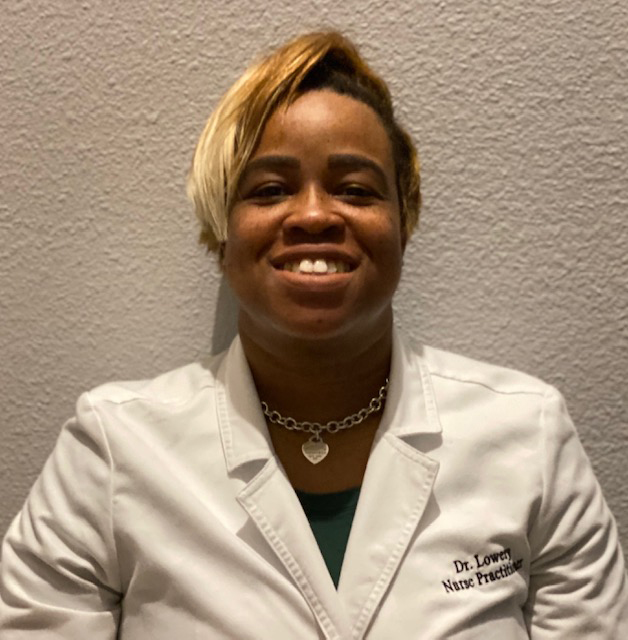Dana Roark,
Instructor of accounting
by Kaylea Brown, Student Reporter
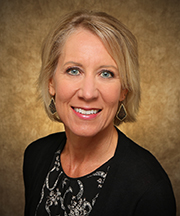
Dana Roark, instructor of accounting, received both a Bachelor of Science degree in accounting and a Master of Education degree from Northwestern. She previously worked for Northwestern from 2007 to 2015. Roark is the owner of a tax preparation and bookkeeping business in Kiowa. She is also a Certified Public Accountant.
Q: What brought you to Northwestern?
A: I was from Alva to start with and I got my bachelor’s and master’s both from Northwestern. So originally Dr. Jordan was taking a leave of absence and I was asked to take her year that she was gone. That was forever ago. Then I was hired, and I was here for seven years but I’ve taught adjunct in between the time I was gone and the time I’m back. So this is my second time around full time at Northwestern. So I was here for seven years and then gone and then came back.
Q: What is your favorite part of your job?
A: I have taught online when I was an adjunct. I’m really glad to be back with the students more than just online. I’ve always liked advising and I’m still very good friends with a few of my students that are now colleagues. So I would say just being back in the classroom, advising students and interacting more than just online like I have been. That would be the best part of being back.
Q: What would people be surprised to know about you?
A: I’m an ultrarunner. I run every morning, probably five to ten miles every morning, but I’m trying to decide if I want to run a 50-miler. I run a few 50ks, which is 32 miles. So I really like running on trails.
Q: What is your superpower?
A: I don’t know if I have a superpower, but people have always laughed that I’m Wonder Woman because I have two daughters, a tax business in Kiowa and also teaching. When the girls were young they were busy. They danced and were gone all the time. So I don’t know if I have a superpower other than just being able to do a lot of stuff at the same time maybe, juggling things, is that a superpower?
Dr. Yvette Lowery,
Assistant professor of nursing
by Erick Livingston, Student Reporter
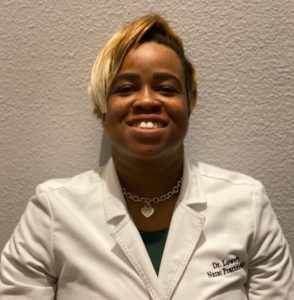
Dr. Yvette Lowery, assistant professor of nursing, holds a Bachelor of Science degree in nursing from Norfolk State University (Virginia) and a Master of Science in nursing from Jacksonville University (Florida). She also earned a doctorate of nursing practice from South University (Savannah, Georgia). Her prior work experience includes part-time nursing professor for online programs at Aspen University (Colorado), adjunct nursing professor for online programs at Simmons College of Nursing (Boston, Massachusetts), and 14 years of clinical experience with numerous hospitals and medical offices.
Q: What brought you to NWOSU?
A: I actually was intrigued in the rural nursing program when I saw the listing, I used to work in a rural E.R in Florida.
Q: What is your favorite part of the job?
A: Having an impact on future nurses and to share my experiences.
Q: What would people be surprised to know about you?
A: I became a fully licensed nurse at 18.
Q: What is your superpower?
A: The ability to calm people, to help people’s anxiety and to calm them down.
Dr. Matthew Lambert,
Assistant professor of English
by Destiny Gardner, Student Reporter
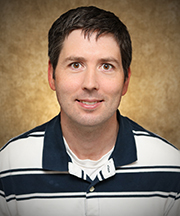
Dr. Matthew Lambert, assistant professor of English, has a Bachelor of Arts degree in English from the University of North Carolina in Asheville and a Master of Arts in English from the University of South Alabama in Mobile.
He also earned a doctorate of philosophy in literary and cultural studies from Carnegie Mellon University in Pittsburg, Pennsylvania. He has worked as a visiting assistant professor of English at Wabash College in Crawfordsville, Indiana.
Dr. Lambert has a book coming out called “The Green Depression: American Ecoliterature of the 1930s and 40s” and will be published by the University Press of Mississippi on October 15th. The book is about ways that American authors, and some filmmakers, responded to major environmental issues of the 1930s and 40s–including flooding, dust storms, urban overcrowding/pollution and nuclear weapons/fallout. Dr. Lambert said, “ I think the book has special relevance to Alva, since it was on the edge of the ‘Dust Bowl’, the region hit hardest by the drought and subsequent dust storms of the 1930s. Now that I am at Northwestern, I’m looking forward to learning more about the experiences of residents in the area during the Dust Bowl.”
Q: What brought you to Northwestern?
A: I was just applying for jobs and Northwestern seemed interested. The campus tour and everything was done over the computer because this opportunity was during COVID-19.
Q: What is your favorite part of your job?
A: Teaching literature and talking about literary texts and hearing ideas from students. My specialty is teaching American Literature.
Q: What would people be surprised to know about you?
A: I used to be a street musician who played the guitar, harmonica and wrote songs.
Q: What is your superpower?
A: Being approachable and being considerate of students and trying to give the benefit of the doubt. Also be a lending ear and have my students know that they can go talk to me.
Dr. Luis Rocha Antunes,
Assistant professor of mass communication
by Dacoda McDowell-Wahpekeche, Student Reporter
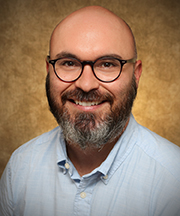
Dr. Luis Rocha Antunes is a new assistant professor in the mass communication department at Northwestern.
He holds a Bachelors of Arts in Portuguese language from the University of Lisbon in Portugal, and a Master of Arts in communication sciences from New University of Lisbon in Portugal.
Antunes holds doctorates in philosophy from the Norwegian University of Science and Technology and from the University of Kent in Canterbury, England.
Q: What brought you to Northwestern?
A: I came to Alva so I can do what I love and not be too comfortable so I can continue growing. At Augusta University in Georgia, I was a lecturer, but found a job opportunity at Northwestern as an assistant professor. I decided it was time for me to take that next step. It is important to keep moving yourself up. It’s not about power. It is about being in a place where you can take full advantage of your skills and doing what you really love doing while pushing yourself to be a little better. You used to have to go to New York City or Los Angeles if you are in the video industry. Nowadays, you don’t. There are a lot more opportunities happening everywhere simply because of the internet.
Q: What is your favorite part of your job?
A: I love the interactions between students and teachers. I love that my students are eager to learn and that I can help these bright and professional students achieve their goals. I see myself a little bit when I was in college. I am addicted to learning. I really love learning. Whenever you are teaching, you never get to a point where you know everything. You always need to keep pushing yourself. Maybe you are assigned a course a little outside your expertise so you go into unknown territory but you go in and find tools that you could bring into your familiar territory. I also love ideas and video. Doing the things I love is great.
Q: What would people be surprised to know about you?
A: Surprised? If we got into everyone’s mind in a private place then we would be surprised and shocked with each other. I am not trying to hide anything, but I think people would be surprised to know that I am big fan of Indiana Jones. Think about it, he is a college professor who does not mind getting dusty and fighting. We tend to have that stereotype about someone in academia, just that guy who is reading all the time. Indiana Jones has the two sides to him. I would love to be that way. When you need to do something that gets your hands dirty, as long as it is ethical obviously then sometimes doing the good involves doing the bad.
Q: What is your superpower?
A: I think I come up with original ideas. I noticed that especially with my research. I try to find an original idea about something. I think my originality of my thinking and thoughts is a superpower. At the same time though, being practical and solving problems.
Kenneth Creech,
Instructor of accounting
by Jordan Green, Student Reporter
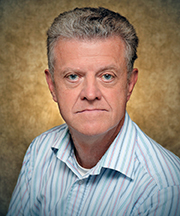
When Kenneth Creech got the opportunity to return to northwest Oklahoma, he took it.
Creech, a certified public accountant, is a new instructor of accounting at Northwestern.
Creech earned a bachelor’s degree of business administration in accounting and a Master of Business Administration degree from Gonzaga University in Spokane, Washington.
Before coming to Northwestern, Creech was an associate professor of accounting at Briar Cliff University in Iowa. He taught management studies at St. Olaf College in Minnesota, and he was an assistant professor of business at the University of Montana Western. He worked as a unit controller at General Signal Corporation, a Connecticut-based manufacturer of railroad crossing signals, and served as chief financial officer at Michigan Wheel Marine, a company that manufactures boat propellers.
Q: What brought you to Northwestern?
A: My family has a long history of going back of Northwestern. My father graduated from Northwestern in 1950. My mother graduated in 1953. My brother was born in the old Alva hospital, before the Share Medical Center. Summers as a child, I was on my grandparents’ farm in Seiling, about an hour from here. When the job came open, it interested me because of the family ties. I have cousins all over Oklahoma and Kansas. And then I got on the website, and there were things I really liked about it. The diversity statement was one of them, the mission statement.
Q: What is your favorite part about your job so far?
A: Meeting the new students. I always enjoy working with the young people that are trying to get ready for their careers. I use a lot of real-life examples in the classes, talk about things that have happened to me in business, when we had to apply the different things we’re applying. I also have developed realistic projects and case studies for things that I did in business for years. In a lot of my classes, testing is at a minimum, and projects and practice sets of real-life examples is what I spend time on. For example, in the business finance class, the first project they’ll do, they’ll do two projects. The first one they’ll do is, you’re in a business, you’re going to buy a $10 million piece of equipment, you have four different financing options. From both a profitability and a cash-flow basis, which of the four options makes the most sense? When I worked with different Fortune 500 companies, I was doing this kind of an analysis several times a year when we were going to spend a lot of money on things.
Q: What would people be surprised to know about you?
A: Probably that, when I was in college, my summer job was fighting forest fires, primarily in Alaska. But one time, I did get sent out of Alaska to go help on some fires in California. I was employed by the Bureau of Land Management, so they could send me to any BLM property. You did on-site training. I went to smoke-jumper school, did a few jumps. Smoke jumper school is in Helena, Montana, and that’s the inter-agency school. … I grew up in an area with a lot of forests in western Washington, had the opportunity to apply and then got accepted. I like to protect our natural resources when I can.
Q: What is your superpower?
A: I can see, I guess, things in the numbers that other people don’t see sometimes.
Mark Zadorozny,
Instructor of health and sports science
by Ethan Everson, Student Reporter
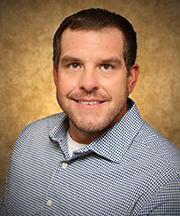
Mark Zadorozny is the new health and sports science instructor at Northwestern.
Q: What brought you to Northwestern?
A: I am a third generation Ranger. My grandparents, mother and father are all Northwestern alumni. When I heard there was a position open in my area, I immediately jumped at the opportunity.
Q: What is your favorite part about this job?
A: I love to teach and be around my students and helping them achieve their goals. It is truly rewarding to see students reach their potential and exceed their own expectations.
Q: What would people be surprised to know about you?
A: I am really into music, but not like the radio plays. I like live music like band contest, rock concerts and choir concerts. I can also play the guitar myself.
Q: What is your superpower?
A: I never have been into superhero movies, but if I was picking a superpower, I would pick teleportation. I love to travel and it would be a lot easier for me to get around instead of driving and flying.
KeEra Busse
Instructor of nursing
by Trinity St. Andrews, Student Reporter
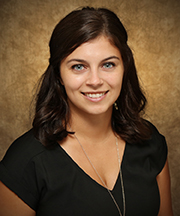
KeEra Busse, instructor of nursing, holds a Bachelor of Science in nursing from West Texas A&M University and a Master of Science in Nursing Education from Western Governors University in Austin, Texas. She has worked as a medical and surgical nurse at BSA Health Systems a clinical instructor at Amarillo College and instructor of nursing at West Texas A&M University.
Q: What brought you to Northwestern?
A: I have family in the area and wanted to move closer to home.
Q: What is your favorite part about the job?
A: Having so much support from other faculty members.
Q: What would be your superpower?
A: To see into the future, to know what to plan for.
Q: What would people be surprised to know about you?
A: I may be young, but there’s a lot that I have accomplished.
Jack Staats
Instructor of agriculture
by Dacoda McDowell-Wahpekeche, Student Reporter
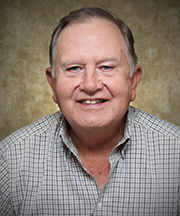
Jack Staats is a new faculty member on campus. He will serve as an instructor in the agriculture department here at Northwestern.
Staats obtained a Bachelor of Science degree in agricultural education from Oklahoma State University. Then he came to Northwestern to acquire his master’s degree.
Staats served as the Oklahoma State FFA adviser for 13 years. He also has served as an educator at schools in Alva, Freedom and Buffalo.
Q: What brought you to Northwestern?
A: Actually, this is my home in Alva. I had taught agriculture education for several years. I basically retired and was coming home, and Northwestern gave me an opportunity to stay involved in agriculture education.
Q: What is your favorite part of your job?
A: Without question, the interaction with young people. The daily interaction with young people is one of the things that I missed while I was State FFA adviser. As the adviser, I was working with schools and teachers and staff to set policy and to help build agriculture education. I was kind of removed from that interaction.
Q: What would people be surprised to know about you?
A: Even though I am older and pretty set in my ways, I am very receptive to change if change is for the good of young people and good for the program. Change for change’s sake isn’t productive for anybody. Change for productivity and improvement is a good thing.
Q: What is your superpower?
A: I would say I have worked very hard to develop my ability to relate to young people. I try to relate to everybody. I think I have always been able to talk to people. Anybody could visit with me, and I could visit with anybody. I have worked very hard to pull that off, and I hope that is a good ability. I think it is a great talent. I am extremely positive, I don’t wanna be told why we can’t do something I just wanna know why not.

